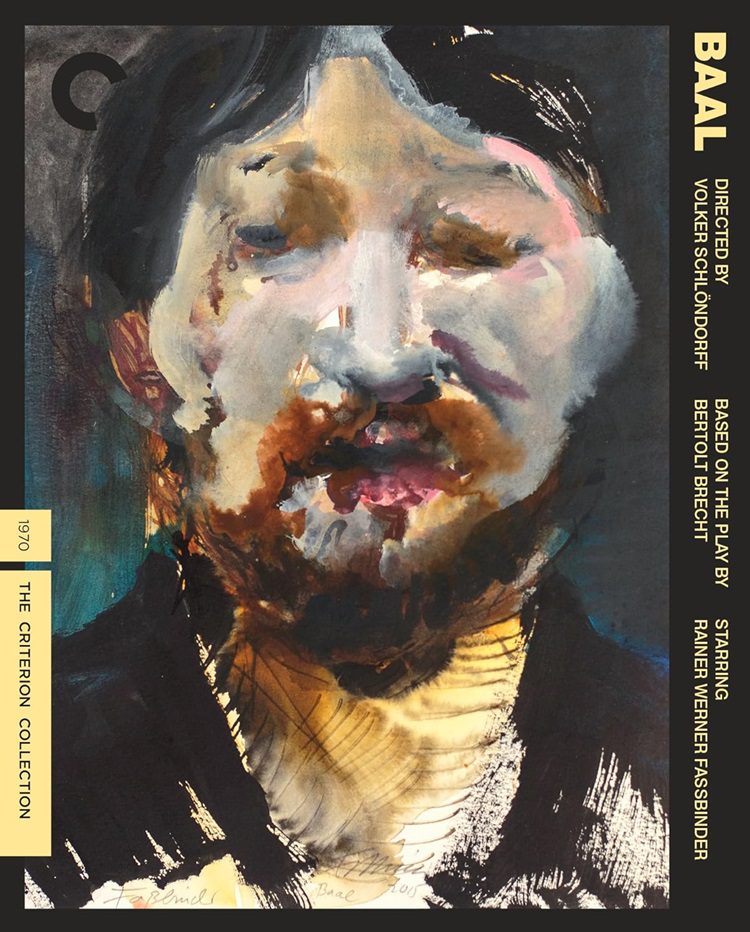
When the legendary Rainer Werner Fassbinder died in 1982 at the age of 37, he really did leave behind an amazing body of work. He lived a hard life of drinking and drugs, but that didn’t stop him from making films about human fragility and emotion. Also, he didn’t just direct films. He also acted in many of them. His boorish, devil-may-care persona began with his 1969 feature debut, Love is Colder than Death, but it didn’t reach its apotheosis until one year later in director Volker Schlondorff’s controversial 1970 adaptation of Bertolt Brecht’s 1918 debut play, BAAL.
Fassbinder brilliantly embodies the vicious and anachist poet, who after believing that society has rejected him and owes him something, goes on a terrible booze and sex-filled odyssey, leaving a trail of emotional destruction in his wake. Basically everyone, especially women, seem to fall for his odd charisma and childish magnetism, in which they are later discarded and abandoned. You see, for Baal, there is no hope and redemption, there is only imminent death.
To be honest with you, I can see why this film was unavailable for nearly five decades. It’s an unbearable, unflinching, and savage portait of misogyny and rebellion that could probably never be made today, especially now during the #MeToo movement. It’s 80-plus minutes of drunk filled despair and grim reality that does feel a little too real, despite its stagey theatrically. It also gives off an air of gringy authenticity due to the fact that it was shot in 16mm camera, bringing the overall story and characters to harsh light.
As usual, Criterion did a great job, saving the film from obscurity with a new 2K restoration of the 2013 re-release, and providing the edition with these supplements:
- Interviews from 1973 and 2015 with Schlondorff
- New conversation between actor Ethan Hawke and playwright Jonathan Marc Sherman about the play and adaptation
- New interview with actress and filmmaker Margarethe von Trotta (‘Sophie’)
- New interview with film historian Eric Rentschler
And rounding out this release is a great new essay by critic Dennis Lim.
In closing, I was actually struck by the sheer discomfort that this film brings, because it doesn’t veer to far from the truth about humanity gone astray. However, it’s not for everyone, but for film lovers and fans of Fassbinder, it should be a new experience to behold.